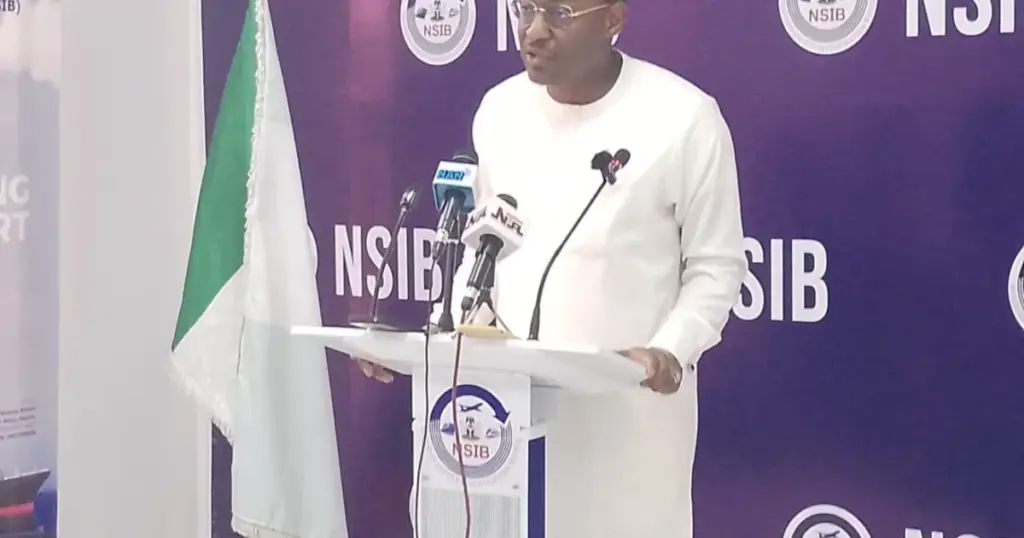The Director-General of the Nigerian Safety Investigation Bureau, Capt Alex Badeh, has expressed concerns over the potential negative impact of the newly passed Internally Generated Revenue tax law on the agency’s operations. Badeh made this known during a virtual briefing with journalists on Thursday.
According to Badeh, the NSIB is studying the law to determine its implications, but it is clear that it will affect the agency negatively. However, the Ministry of Aviation is actively engaging with the Federal Government to address these concerns before enforcement begins.
“It is a potential problem, but we are being proactive, and the aviation ministry is also very proactive, and let’s see how that plays out before enforcement,” Badeh said. Despite the challenges, Badeh highlighted the strides NSIB has made in strengthening transportation safety. He described the implementation of the NSIB Establishment Act of 2022 as a game-changer, capable of significantly reducing incidents and accidents across all modes of transportation.
The NSIB boss emphasised the importance of cooperation from relevant agencies, including the Nigerian Maritime Administration and Safety Agency, to align with international safety standards. He noted that NSIB has drafted key regulations necessary to navigate and ensure safety in Nigeria’s multimodal transport system.
These regulations include the Maritime Safety Investigation Regulations 2025, Railways (Investigation of Accidents and Incidents) Regulation 2024, and Civil Aviation (Investigation of Air Accidents and Incidents) Regulations 2025. Badeh stressed that these regulatory frameworks are awaiting approval before the agency commences implementation.
On overlapping mandates with NIMASA, Badeh clarified that NSIB’s emergence fills a critical gap, ensuring independent investigations in line with global best practices. He emphasized that NSIB is recognized by the International Maritime Organisation and collaborates closely with international counterparts.
The NSIB DG also revealed plans to onboard investigators specialized in the maritime and rail sectors by September and October. “The bureau is engaging professionals, retirees, and personnel seconded from NIMASA and the National Inland Waterways Authority, as well as sending staff for training in the UK,” Badeh said.
He shared that NSIB already has a framework agreement with the Nigerian Navy to support maritime investigations. Badeh expressed optimism that NIMASA will soon fully cooperate with NSIB, noting that the Nigerian Railway Corporation and National Inland Waterways Authority are eager to work with the agency.
Badeh stressed that NSIB’s investigations aim to determine causes and not assign blame, but these investigations do not eliminate the possibility of civil, criminal, or administrative proceedings where warranted.
The NSIB DG’s concerns over the new tax law highlight the need for careful consideration of the implications of such legislation on critical agencies like NSIB. As the agency works to address these concerns, it is essential to ensure that safety investigations are not compromised.















